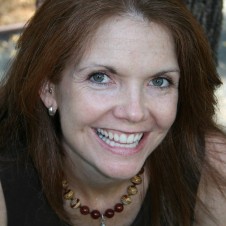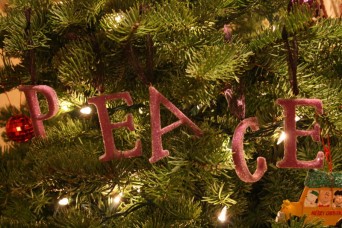 BY CHERYL DUMESNIL
BY CHERYL DUMESNIL
LESBIAN.COM
On a weekend away in the mountains, my wife Tracie, my friend LaDonna, and I were sitting in the kitchen, quietly eating breakfast, when LaDonna’s seventeen-year-old nephew, seemingly out of nowhere, bounded into the room like a gazelle leaping a ten-foot fence. LaDonna gasped and slapped her hand to her heart, while Tracie and I continued sipping our coffee as though nothing had happened.
I looked up at LaDonna.
“That’s what I’m talking about,” she said. “He’s always startling me.” The nephew had been staying with LaDonna and her wife Gabby for the past few months, and along the way LaDonna had been telling me what it’s like to have a teenaged boy in the house: the quantities of food consumed, the loud music, the hours and hours spent on computer games, the general bigness of it all.
“That?” I asked.
Tracie chuckled.
“That’s just boy stuff,” I said.
Tracie nodded.
“Really?” LaDonna asked.
“Did you notice that we didn’t even blink when he did that?” I asked.
“Maybe you’re just not used to it,” Tracie suggested.
Prior to their nephew’s arrival, LaDonna and Gabby had raised LaDonna’s daughter, who now lives on her own. They have no precedent for living with boyness. Tracie and I, on the other hand, are raising two sons, currently ages six and eight. And while they are nowhere near their teen years, our kids’ bigness and their boyness get bigger and boy-er every day.
Before I became a mom of two boys, I whole-heartedly rejected the notion that boys and girls are inherently different. After observing my children amongst their peers, however, I cannot deny that most (not all) boys operate differently than most (not all) girls.
Some typical aspects of boyness I have learned to live with, like the exuberant physical energy, the loudness, the potty talk, the obsession with certain body parts. Other typical aspects I refuse to accept, namely the utter lack of self-awareness and the baffling tendency toward aggression.
For Tracie and me, a pervasive question looms under our parenthood: How can we make space for our boys to express their boyness while helping them become emotionally savvy, peaceful men?
Yeah, I have no idea either, but I think our youngest son might have turned me on to something while we were baking Christmas cookies the other day.
As a surprise for the boys, I had added to our cookie cutter collection a set of three “Ninjabread Men,” gingerbread man figures shaped into martial arts stances. I bought them because our kids have been taking martial arts classes for the past two years, and I wanted to reinforce their extracurricular activity with, well, with sugar.
But as the six-year-old and I were laying the cut dough onto the baking sheet, I flashed on this potential scene: my two boys using our baked-with-love cookies to act out a Jackie-Chan-caliber death scene. You know: “Fa-la-la-la-laaaaaaaaah. Cough. Cough. Wheeeeeeeeze . . . ” Not exactly the brand of holiday joy I was hoping to inspire that particular Saturday morning.
So I pointed to the ninjas on the tray, performing their flying kicks over the Christmas trees and the stars and the candy canes, and I said, “See these guys?”
“Yeah,” my kiddo confirmed.
“They’re the helpers.”
“Yeah,” he agreed. “They help keep the peace.”
“Right,” I said. “So what should we call them?”
Little guy thought for a minute then said, “They’re the Peace Helpers.”
“I like that,” I said.
And I do. A lot.
 So for the past few days, we’ve been talking about Peace Helpers — who they are, what they do, and how they do it. We’ve talked about Peace Helpers we know — adults and kids who have helped us feel confident, powerful, and safe. We’ve talked about how we can be Peace Helpers ourselves, by understanding our own feelings, by expressing ourselves in ways that don’t hurt others, by taking responsibility for our actions, by standing up for others and by helping others feel good about themselves. And we’ve talked about how being a Peace Helper doesn’t mean you’re a perfect person (after all, even Mommy and Mama lose their cool sometimes). Being a Peace Helper means that, even though you make mistakes sometimes, most of the time you’re trying to do the right thing.
So for the past few days, we’ve been talking about Peace Helpers — who they are, what they do, and how they do it. We’ve talked about Peace Helpers we know — adults and kids who have helped us feel confident, powerful, and safe. We’ve talked about how we can be Peace Helpers ourselves, by understanding our own feelings, by expressing ourselves in ways that don’t hurt others, by taking responsibility for our actions, by standing up for others and by helping others feel good about themselves. And we’ve talked about how being a Peace Helper doesn’t mean you’re a perfect person (after all, even Mommy and Mama lose their cool sometimes). Being a Peace Helper means that, even though you make mistakes sometimes, most of the time you’re trying to do the right thing.
I’m not sure how far the Peace Helpers idea will take us on the road to raising self-aware, emotionally responsible adults. But it’s a start.
Meanwhile, I’m pleased to report that when the inevitable cookie battle erupted at the kitchen table, those Ninjabread Men aka Peace Helpers used their powers to save the world.
You’re welcome.
Poet, writer, activist, and educator, Cheryl Dumesnil is the author of the forthcoming memoir “Love Song for Baby X: How I Stayed (Almost) Sane on the Rocky Road to Parenthood.” She spends her free time jumping on a trampoline and telling potty jokes, because the sound of her kids’ laughter makes her really, really happy.






